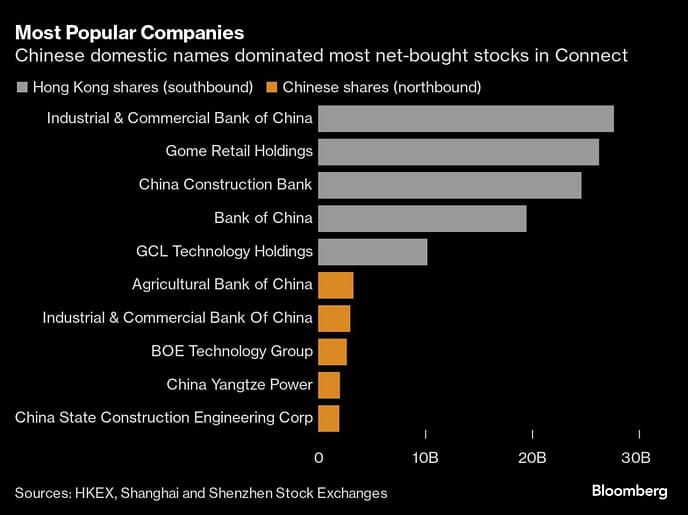(Bloomberg) — A decade after China opened up its exchanges to a broad swath of international investors through a trading link with Hong Kong, investors are craving deeper access.
Most Read from Bloomberg
With billions of dollars worth of trading volume flowing across the border between Hong Kong and Shanghai and Shenzhen on a daily basis, the stock connect has been a success. While the link was later expanded to include bonds, exchange traded funds and interest rate swaps, it has yet to allow investors to access the primary market, or initial public offerings.
Charles Li, one of the key architects of link as then chief executive officer of the Hong Kong Exchanges & Clearing Ltd., said that opening up the primary market was always the ultimate aspiration.
“There is even a greater future for Stock Connect” to allow Chinese investors to subscribe to Hong Kong IPOs and vice versa, Li, who stepped down as CEO in 2020, said in an interview.
The idea of allowing Chinese investors to tap IPOs in the former British colony has never been on the top of the agenda for risk-averse policymakers and regulators, even though many mainlanders are able to circumvent capital controls to invest in Hong Kong share sales.
HKEX Chief Executive Officer Bonnie Chan declined to give any start date on primary connect saying “everything has its moment” and that with a more robust IPO pipeline “conditions will be riper.”
“We are just at the beginning,” of the connect program, she said in an interview with Bloomberg TV. HKEX will look at building out connect with more products, better infrastructure and bringing in more participants, she said.
The link is being celebrated at a ceremony in Hong Kong on Monday, with speakers including Chan and her counterparts in Shanghai and Shenzhen, as well as local and mainland regulators.
Turnover is rising again after two sluggish years as Chinese and Hong Kong bourses slid. China’s recent stimulus measures and market support has also caused trading to surge.
Average daily trading northbound — or into China — has reached about $17 billion a day, while trading southbound has risen to almost $5 billion.
The exchange estimates that net more than 1.8 trillion yuan ($249 billion) has entered Chinese stock market from the program. Another HK$3.4 trillion ($436 billion) has flowed into the Hong Kong market, according to HKEX data.

